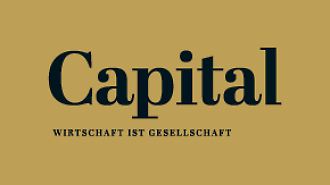Interview with Marcel Fratzscher
“An escalation of war is the greatest risk of recession”
05/27/2023, 3:40 p.m
The German economy slides into recession. DIW boss Fratzscher explains what the weak phase means for consumers, why it is not over yet and how the federal government could take countermeasures.
We have negative growth for the second straight quarter and now meet the definition of a technical recession. Are these just seasonal effects or are they actually an expression of the weakness of the German economy?
Marcel Fratzscher: The recession first took place in the winter half-year, in the current quarter we are expecting positive numbers again. Overall, however, the economy will remain at the level of the previous year and will not recover visibly in the coming year either. A special feature of the current situation is that private consumption is unusually weak.
Has it been weakened by inflation?
Yes, real wages are falling significantly. Low-income people have been hit particularly hard because inflation is well above wage increases. The ECB will probably raise interest rates again, which will also weaken investment and wages.
So will purchasing power remain low in the long term?
The purchasing power of people with low and middle incomes will probably continue to fall significantly – their individual inflation is two to three times higher. People with high incomes can still absorb the costs of energy and food relatively well. In some cases, they even have significant savings from the Corona times and from the income tax relief.
Unlike consumption, the investment climate has developed positively.
The global economy is in the process of recovering, and an open economy like Germany is benefiting particularly strongly from this. This is also reflected in the export figures. The order books of the companies are now full again. Of course, export companies will benefit from the opening of China after the corona lockdown measures, the service sector less.
In the first estimate, the Federal Statistical Office assumed stagnation. From your point of view, how did the very clear deviation of 0.3 percentage points come about?
For us economists, 0.3 percentage points is not a big deviation. This is not unexpected. What is important is that we will remain in the weak phase for the time being and a lot can still happen that will drive the economy back into recession.
What for example?
An escalation of the war in Ukraine is certainly the greatest risk. The supply chain problem has not been finally resolved either. And geopolitical conflicts, for example between China and the USA, could intensify.
So the view of the year as a whole is not very positive?
Exactly, we expect growth of around zero percent. It could also be slightly positive or negative, but we don’t know that. A recession is usually followed by a fairly significant catch-up process, but we don’t expect that to be the case. Overall, we are talking more about stagnation for the foreseeable future. Low-income people could need four or five years for the purchasing power of their wages to return to pre-crisis levels.
What could the German economy bring out of this negative phase?
Massive investments that, above all, accelerate the ecological and digital transformation. On the one hand, politics could create better framework conditions for private investments and, on the other hand, provide targeted relief for people with low incomes. That should be the top priority for the federal government.
Victoria Robertz spoke to Marcel Fratzscher.
This interview first appeared on capital.de
